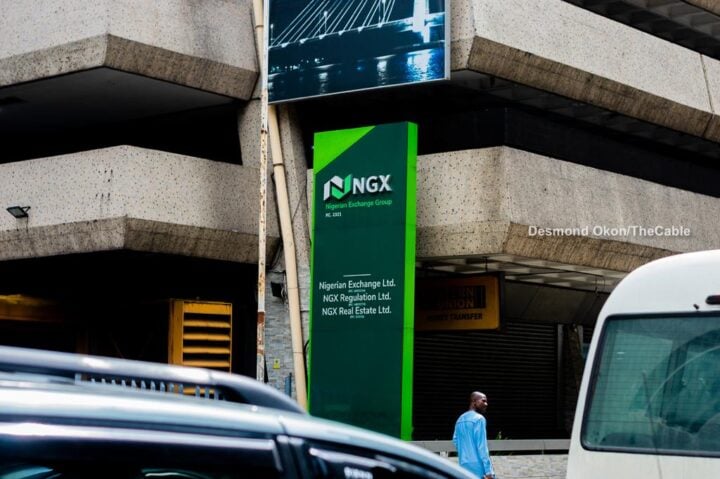Pension funds in Nigeria have become a cornerstone of residential housing financing for Nigeria‘s workforce. The Pension Reform Act (PRA) 2014 allows pension contributors to utilise their retirement savings account (RSA) balances for equity contributions towards residential mortgages.
This initiative aims to assist in bridging the housing deficit in Nigeria, particularly affecting workers enrolled on the contributory pension scheme (CPS).
Since its launch in March 2023 to June 2024, pension fund administrators (PFAs) have disbursed N47.13 billion to mortgage lenders, facilitating equity payments for 5,276 RSA holders’ residential houses. A breakdown shows that the National Pension Commission (PenCom) approved N28.53 billion in the first half of 2024, enabling 3,539 RSA holders to realise their dreams of homeownership.
The CPS has thus emerged as a pivotal force in empowering workers to secure homes, underscoring the scheme’s robustness and transformative impact on Nigeria’s housing landscape. Many employees aspire to own homes before retiring, but the hurdle of providing equity for a mortgage often stands in their way.
Advertisement
Recognising this challenge, Section 89 (2) of the PRA 2014 paved the way for RSA holders to own their homes while in active service. In line with this provision, PenCom issued guidelines outlining the processes for accessing up to a maximum of 25 percent of RSA balances to facilitate equity contributions for residential mortgages.
ELIGIBILITY AND APPLICATION PROCESS
The guidelines set out a detailed eligibility criteria for RSA holders seeking to apply. First, the RSA must have both employer and employee’s mandatory contributions for a minimum cumulative period of 60 months prior to the application. Furthermore, RSA holders that have less than three years to retirement are not eligible to participate.
Advertisement
An RSA holder intending to apply must first secure an offer letter for the property from the owner or an approved agent. Subsequently, the applicant would approach a mortgage lender to complete an application form. The mortgage lender reviews the application and validates the authenticity of the property offer.
The mortgage lender, typically a commercial bank or a primary mortgage bank (PMB) licensed by the Central Bank of Nigeria (CBN), conducts due diligence to ensure the genuineness of the offer and the property valuation report. Once confirmed, an applicant approaches the PFA to request his RSA statement, seeking to access 25 percent or less of the RSA balance for the equity contribution.
Subsequently, the PFA issues a duly endorsed RSA statement to the applicant, who forwards it to the mortgage lender. The mortgage lender verifies if the 25 percent RSA balance is sufficient for the equity contribution. If acceptable, a mortgage offer letter is issued. Otherwise, if 25 percent of the RSA balance is insufficient, the mortgage lender is required to request the payment of supplementary equity contribution from the applicant. Upon confirmation of the additional equity contribution payment and meeting other requirements, the mortgage lender shall offer a mortgage loan to the applicant.
Within two working days of issuing the mortgage offer letter, the mortgage lender sends copies of the letter, mortgage application form, and verified property offer letter to the applicant’s PFA.
Advertisement
EQUITY CONTRIBUTION PAYMENT APPROVAL PROCESS
The applicant approaches the PFA for payment of the equity contribution by obtaining and completing an application form for 25 percent of his RSA balance and providing an indemnity to the PFA. The PFA also computes and validates that the requested amount is not more than 25 percent of the RSA Balance. PFA forwards successful applications to PenCom within two working days.
PenCom reviews all applications for compliance with the extant guidelines. Applications that do not conform to the requirements are rejected and reasons communicated. Upon approval, the PFA issues a payment instruction to its pension fund custodian (PFC) to remit the approved amount to the mortgage lender within two working days.
IMPLEMENTATION CHALLENGES
Advertisement
Prospective applicants should note that strict adherence to PenCom’s guidelines is crucial for expediting the approval process. During implementation, some issues were noted as described hereunder.
RSA funds accessed for equity contribution cannot be used for refinancing existing mortgages, purchase of non-developed lands, outright property purchases, or building renovations. Additionally, the use of RSA funds for acquiring mortgages for non-residential buildings is not permitted.
Advertisement
Furthermore, if 25 percent of an applicant’s RSA balance falls short of covering the equity contribution, the applicant is required to deposit the shortfall with the mortgage lender before accessing the 25 percent from the RSA balance as equity contribution. Regrettably, instances have arisen where applicants mistakenly paid the supplementary equity contribution directly to the property owner instead of depositing it with the mortgage lender, leading to application rejections.
RSA holders employed in organisations without defined retirement ages must submit attestation letters from their employers to their PFAs, confirming that they have more than three years until retirement, in accordance with the guidelines.
Advertisement
Commercial banks and PMBs participating as mortgage lenders must ensure that they possess a valid pension clearance certificate issued by PenCom for a smoother application process.
In conclusion, the successful implementation of these guidelines is an indication that the CPS has innovative provisions that address most concerns of the participants.
Advertisement
Add a comment









